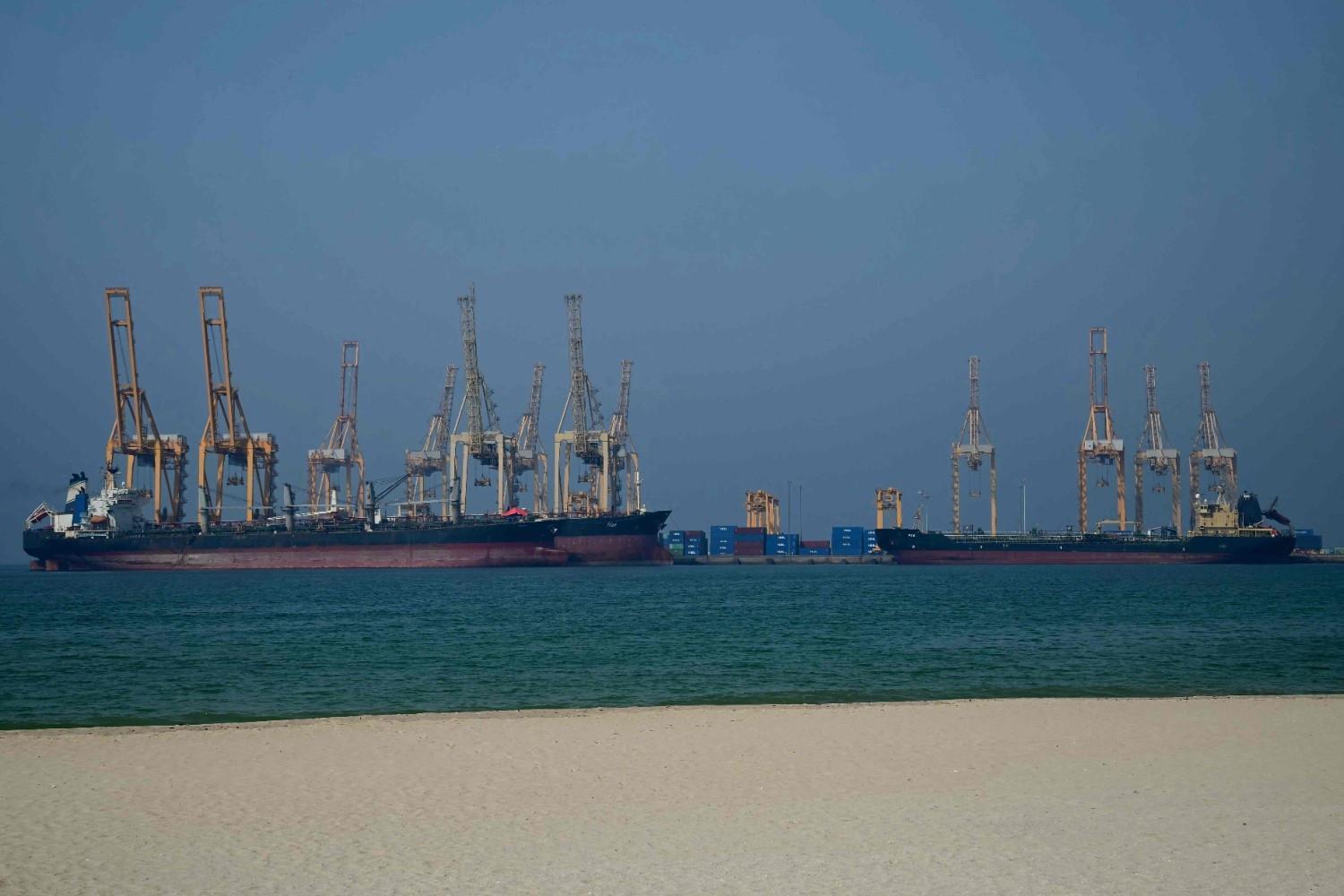
Tankers are seen at the Khor Fakkan Container Terminal, the only natural deep-sea port in the region and one of the major container ports in the Sharjah Emirate, along the Strait of Hormuz, a waterway through which one-fifth of global oil output passes on June 23, 2025.
Türkiye is ready to counter disruptions if the Strait of Hormuz closes, with alternative energy supplies from Iraq, Azerbaijan, and Russia, Transport and Infrastructure Minister Abdulkadir Uraloğlu said on Friday.
Speaking on CNN Türk, he outlined plans to mitigate regional conflicts’ impact and advance major transport projects.
Even the rumors of a Strait of Hormuz closure sparked a 15 percent oil price surge, Uraloğlu noted.
“Türkiye would be affected, but we have options,” he said, citing coordination with the Energy Ministry. While short-term disruptions are manageable, a prolonged closure would challenge supplies.
Regional conflicts involving Israel, Iran, and the United States have disrupted air travel. Syria and Iraq closed their airspaces, halting Türkiye’s flights. Iran’s partial airspace closure, after striking a U.S. base in Qatar, suspended commercial flights, affecting tourism. Most airspaces are reopening, but Iran’s remains limited, Uraloğlu said.
The Development Road, a 1,200-kilometer rail, road, and energy corridor from Iraq’s Faw Port to Türkiye and Europe, could reduce dependence on the Strait of Hormuz. “If completed, markets would have reacted less,” Uraloğlu said. The project aims to link Asia to Europe via Türkiye.
The Middle Corridor, connecting China to Europe through Türkiye, takes 18 days for cargo. Upgrades could cut this to 15 days. A global forum, opened by President Recep Tayyip Erdoğan on Saturday, will plan crisis responses with 70 countries. Türkiye’s $193.5 billion transport investments over 23 years bolster its regional role, Uraloğlu added.
Uraloğlu said that Türkiye restored Damascus airport’s operations since December, upgrading outdated radar systems. Turkish Airlines now runs 30 weekly flights from Istanbul to Damascus. Syria plans flights to Istanbul, leveraging Istanbul Airport’s 80 million annual passengers.